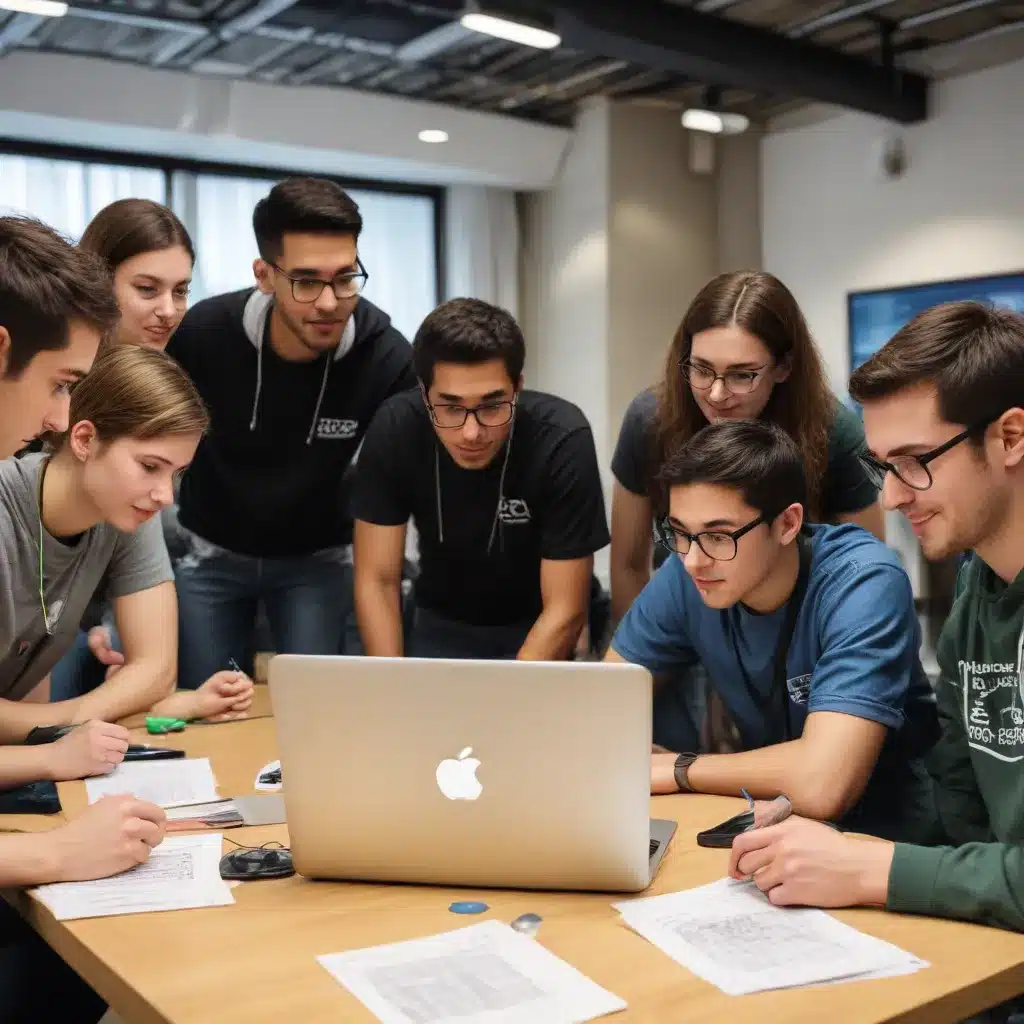
Harnessing the Power of Global Connections
In today’s increasingly interconnected world, the ability to collaborate effectively across diverse cultures has become an invaluable skill for students and young professionals. As the world becomes more globalized, employers are seeking individuals who can navigate complex intercultural environments and contribute to innovative, cross-border projects.
One exciting way for students to develop these essential competencies is through participation in international hackathons and design challenges. These immersive, project-based learning experiences bring together talented individuals from around the world to tackle real-world problems and push the boundaries of innovation.
At Stanley Park High School, we recognize the transformative potential of these global collaboration opportunities. By empowering our students to engage in intercultural teamwork and problem-solving, we aim to equip them with the skills and mindsets needed to thrive in an increasingly interconnected world.
Expanding Horizons through International Hackathons
Hackathons are fast-paced, collaborative events where participants come together to develop innovative solutions to a given challenge. In an international hackathon setting, students have the unique chance to work side-by-side with peers from diverse cultural backgrounds, bringing together a rich tapestry of perspectives, skills, and experiences.
“The Global Case Study Challenge (GCSC) is an excellent example of an international virtual project that provides participants with invaluable global experience,” explains Dr. Barbara Covarrubias-Venegas, one of the project’s creators. “Students from Bachelor, Master and Postgraduate programs around the world come together in an online case study challenge, fostering interdisciplinarity and reflecting the true diversity of globally operating teams.”
Through the GCSC, students not only gain practical experience in areas like digital cooperation, virtual teamwork, and intercultural communication, but they also develop a deeper understanding and appreciation for cultural differences. As Dr. Eithne Knappitsch, Covarrubias-Venegas’ collaborator, notes, “This fosters interdisciplinarity and reflects the true diversity of background and experience found in globally operating teams.”
Designing for a Better Future
In addition to hackathons, international design challenges offer another powerful platform for cultivating intercultural collaboration and problem-solving skills. These competitions task students with designing innovative solutions to pressing global issues, from sustainability and social justice to health and education.
“The ‘Games Now! Online Jam’ (GNOJ) is a great example of a cross-cultural online design challenge organized by Aalto University in Finland,” says Solip Park, one of the project’s researchers. “Participants from Finland, Sweden, South Korea, and Japan came together virtually to create games, fostering cultural awareness and competencies in understanding local nuances in game development and communication styles.”
The GNOJ project highlights the valuable learning opportunities that can arise when students from different cultural backgrounds work together to tackle complex design challenges. As Park explains, “By fostering cultural awareness and competencies in understanding local nuances, such initiatives can help future (and current) game developers to effectively prepare for multinational work environments and cooperative workflows with remote teams spanning multiple time zones.”
Building Bridges, Expanding Perspectives
Through their participation in international hackathons and design challenges, students at Stanley Park High School have the chance to develop a truly global mindset. By collaborating with peers from diverse backgrounds, they learn to navigate cultural differences, communicate effectively, and find innovative solutions to pressing problems.
“I learned how to communicate with people in different parts of the world,” shares a Japanese participant in the GNOJ project. “Being able to work with other people from other countries and try to make something together was a lot of fun.”
Another GNOJ participant from Sweden echoes this sentiment, stating, “It was really inspiring to see what other jammers had put up. The localization aspect of game development interests me, as a linguist.”
These powerful experiences not only foster valuable skills but also cultivate a deeper appreciation for cultural diversity and a commitment to global citizenship. As students navigate the challenges and surprises that arise in these intercultural settings, they gain invaluable lessons in adaptability, empathy, and problem-solving.
Unlocking Limitless Potential
By embracing the opportunities presented by international hackathons and design challenges, the students of Stanley Park High School are poised to become the global leaders of tomorrow. Through these immersive, project-based learning experiences, they develop the essential competencies needed to thrive in an increasingly interconnected world.
As Dr. Anna Zinenko, another GCSC project collaborator, eloquently states, “It doesn’t matter if students end up working in a hotel or a travel agency, if they want to grow their professional career they will have to work with international teams. This project gives the opportunity to the participants to practice and develop these skills.”
By fostering intercultural collaboration and a global mindset, we empower our students to tackle complex challenges, forge meaningful connections, and make a lasting impact on the world around them. As they embark on these transformative journeys, we are excited to witness the limitless potential they will unlock.
Conclusion: A World of Possibilities
At Stanley Park High School, we believe that international hackathons and design challenges are powerful tools for preparing our students for the demands of the 21st-century workforce. By immersing them in diverse, global learning environments, we equip them with the skills, knowledge, and cultural competencies needed to thrive in an interconnected world.
As our students continue to engage in these enriching, cross-border experiences, we are confident that they will emerge as innovative problem-solvers, effective communicators, and responsible global citizens. With a deep appreciation for cultural diversity and a commitment to collaborative problem-solving, they will be poised to make a meaningful impact on the world.
So, let us embrace the boundless opportunities presented by international hackathons and design challenges, and empower our students to forge their own path to success in an ever-changing global landscape.

